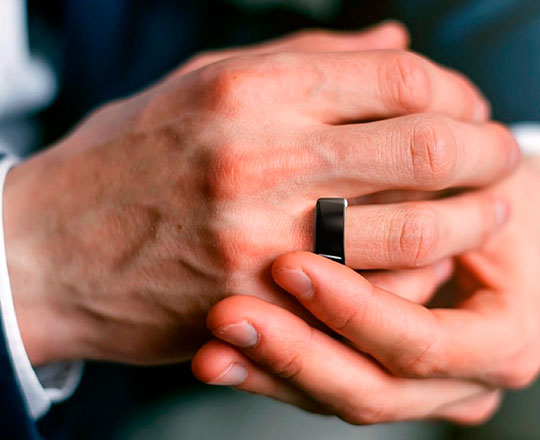
In 2021, this new Korean-made device has won the prestigious Red Dot Award, given to the best device for design and business projection.
The use of new technologies incorporating artificial intelligence algorithms is increasingly common in medical diagnostics.
Atrial fibrillation is the most common sustained arrhythmia, with a high incidence in older populations. New onset of atrial fibrillation in patients who have undergone coronary intervention confers a worse prognosis, with higher rates of adverse events and mortality. It is therefore important to detect it early.
This device, called CART-I (SkyLabs, South Korea), provides 24-hour heart-rhythm monitoring with 99.6% accuracy in the detection of atrial fibrillation, using a ring that is worn on the finger. It is made of surgical materials, and emits photoplethysmography signals that measure the heart rate, identify episodes of atrial fibrillation and generate an electrocardiogram in real time. The ring, which has a battery-life of 48 hours, is water resistant and sends the information to a mobile phone application where the recording can be viewed and sent to the patient’s doctor. The ring can store 1500 episodes of 10 seconds’ duration, but can also record 30 seconds of electrocardiogram at any time or perform a continuous analysis of recent hours.
The future of this technology is moving toward the analysis of other types of arrhythmias, continuous blood pressure monitoring, assessment of heart failure parameters, chronic obstructive pulmonary disease, analysis of stress levels, sleep quality, and assessment of obstructive sleep apnea syndrome.
Keywords: Atrial fibrillation, wireless technology.

